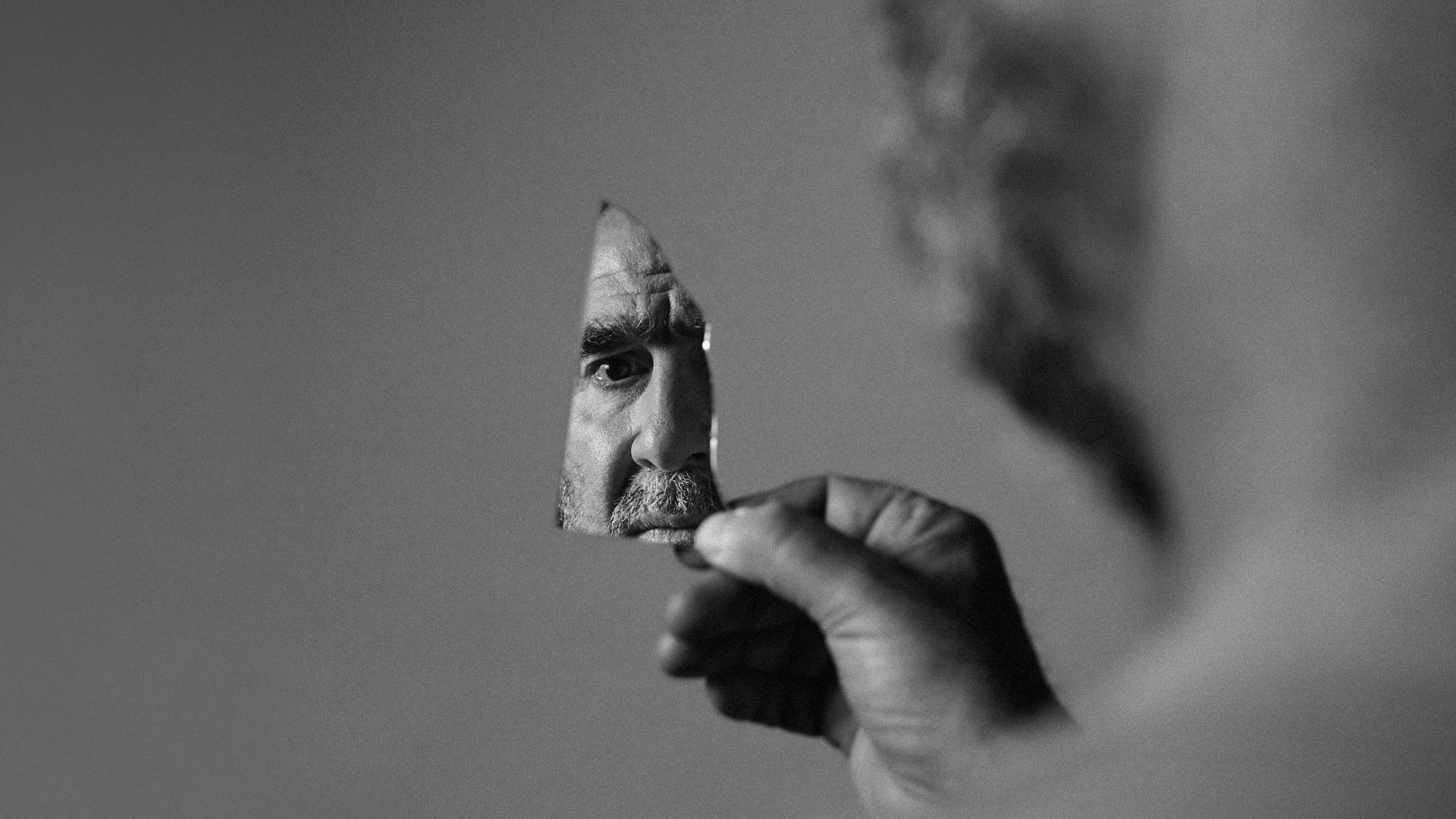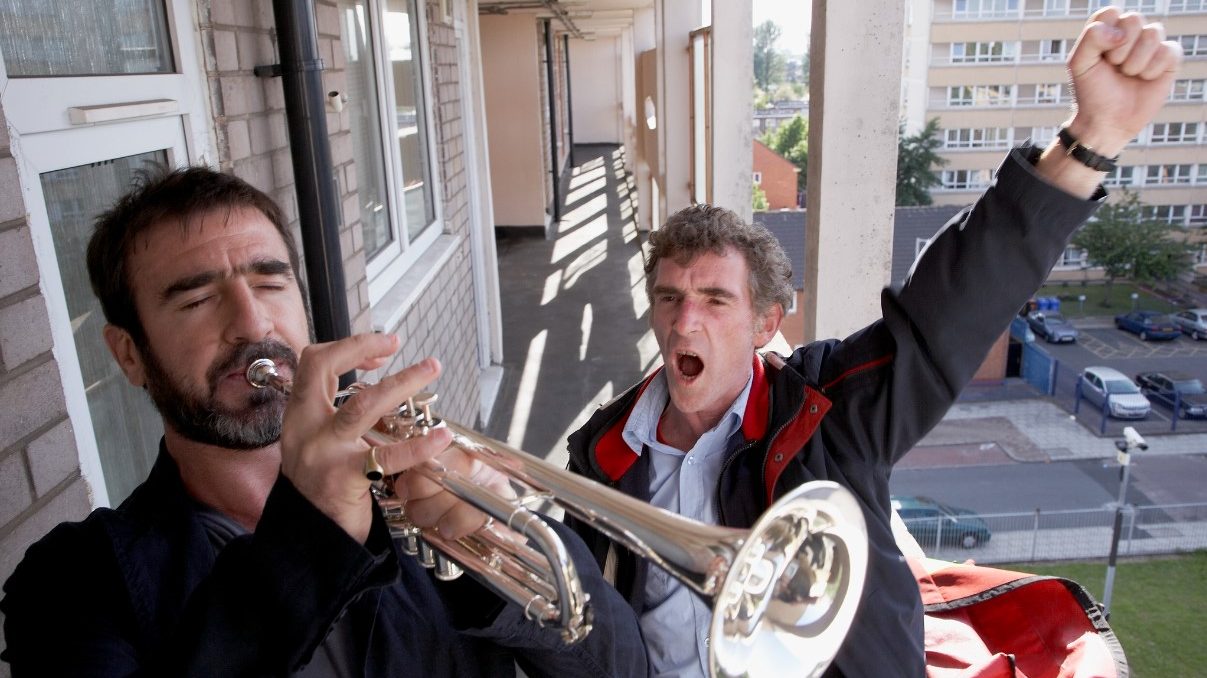It’s 30 years since Eric Cantona played his first game for Manchester United after a short spell at Leeds. His impact on his clubs was immense: having just helped the Yorkshire club to their first title for 18 years, he then led the other United to their first league championship in 26 years. His impact on British football may have been even bigger: Cantona’s success marked the beginning of top-class European footballers coming to England while in their prime.
A brilliant, cocky, charismatic individualist, always visible with his trademark turned-up collar and a knack for opening up defences, Cantona didn’t just score, he did it with style. Many of his 64 goals for United were astonishing. Yet our memories of all of this are almost eclipsed by his words at a press conference following a successful appeal against two-week prison sentence imposed after the kung-fu kick and punches he directed at a Crystal Palace fan in the crowd at Selhurst Park in 1995:
“When the seagulls follow the trawler, it’s because they think sardines will be thrown into the sea.”
This cryptic pronouncement puzzled many at the time, but it was probably just a poetic dig at tabloid journalists who followed him and fed off the scraps he threw them. It was given extra weight by the silence that followed, as the Frenchman served an eight-month ban from football and completed 120 hours of community service. A book analysing his quotes, The Meaning of Cantona: Meditations on Life, Art and Perfectly Weighted Balls, was released and sold quickly; a biography by the French journalist Philippe Auclair revealed Cantona’s fear of the double death experienced by elite sportspeople, once as a hero heading into retirement and then as a human heading towards the grave. Somewhere in all this, the notion that the absent Eric might be some sort of wandering philosopher began to take hold.
It is one he has played up to since, although he has also exhibited a genuine interest in the works of the French philosopher and sociologist Edgar Morin, saying: “He writes a lot about metamorphosis, and that’s my vision of life. It applies to everything. You’re in love with somebody, you’re not in love with somebody, you use this experience to keep growing… This vision and philosophy takes in life in a very positive way.”
Some have labelled Cantona an existentialist, in part because he is French and sometimes speaks like a Left Bank intellectual, and partly too because he’s a natural rebel who delights in defying conventions. But is that warranted?
Years after his attack on the Palace fan, he was asked about it on BBC’s Newsnight. Far from expressing contrition for his attack on the fan, he came out with something closer to “Je ne regrette rien”, condoning his own violence: “I love it and I don’t regret it… I am not a role model. I am not an example… I am just a human being with emotion,” he said. On another occasion he told a reporter: “I should have hit him harder”.
In Being and Nothingness, Jean-Paul Sartre wrote about the “Bad Faith” of accepting roles others assign to us. He used the example of a café waiter who seemed to act out a pre-defined part as if he had no choice at all in the matter. Sartre wasn’t impressed. The waiter is the key example of Bad Faith, an unwillingness to recognise one’s own fundamental freedom. In rejecting the role of footballer-as-role model, and in deciding not to act the part of the sinner asking for redemption afterwards, Cantona demonstrated his freedom to define himself and not become “prey to the Other” (presumably the Other as seagull in search of sardines). In that sense he came close to the existential ideal of rejecting labels and parts that other people script for you.
That assertion of his freedom to act for himself didn’t make him right in what he did and said, of course. His action and refusal to apologise for it are still disturbing. It is one thing to react in the heat of the moment, but quite another to try to justify it later. Yet that unwillingness to do what is expected of you simply because it is expected of you is, at first glance, characteristically existentialist.
But in his 1945 lecture Existentialism is a Humanism, Sartre declared that the anguish of the human condition arises from the fact that to act authentically is to act as if the whole of humanity is watching us. “In fashioning myself, I fashion humanity,” he claimed. If we act authentically we have to believe that what we do is not right just for us, but for anyone in a similar situation. How we live presents a model of how we think everyone should live. If we choose violence, we choose it for everyone. If we choose to be repentant when we fall short of our ideals, that is what we think everyone should do. For Sartre, there was no way out of being an exemplar, not even for a one-off like Cantona.
As David Beckham comes under fire for being an ambassador and apparent apologist for Qatar at the World Cup, and players-turned-pundits like Gary Lineker use their platforms to express disgust at that country’s human rights record, treatment of migrant workers, and anti-LGBTQ+ laws, it is difficult to maintain that top ex-footballers are anything less than influential role models. For Sartre, everyone was a role model, but you don’t have to go that far to recognise that Cantona, Beckham and Lineker still are.




